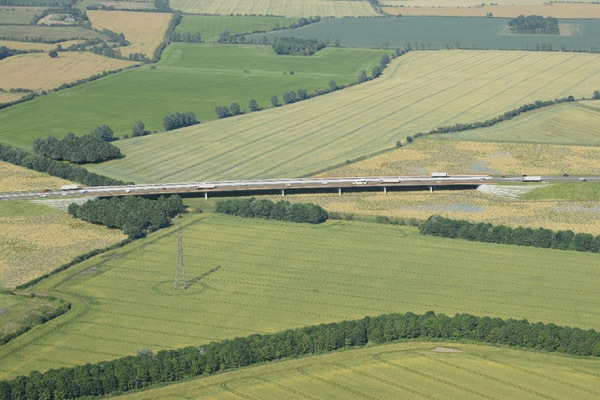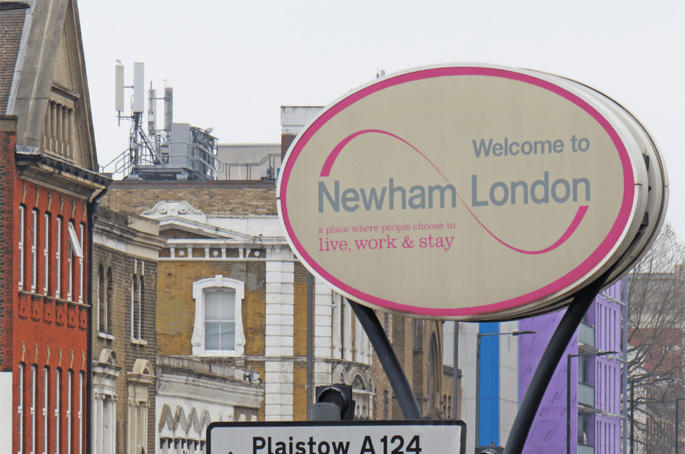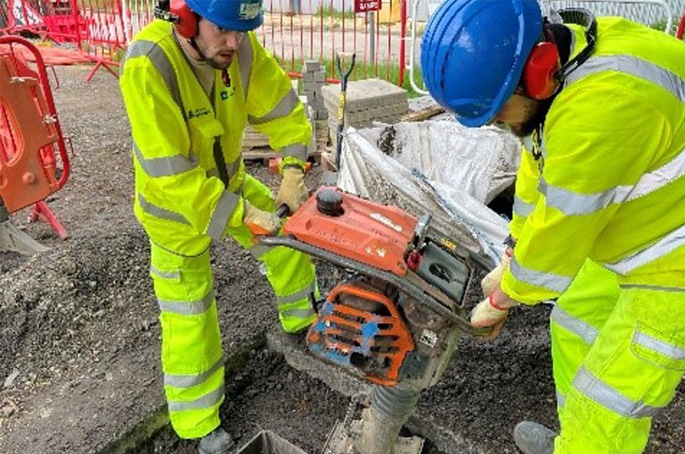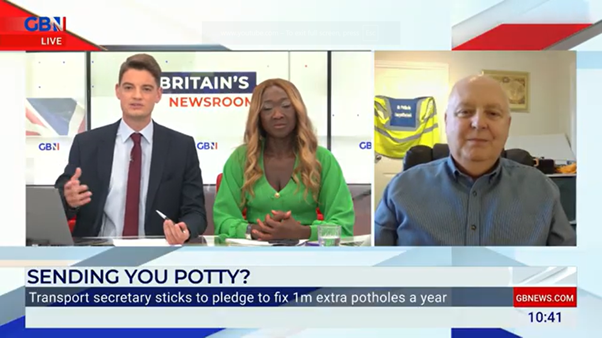The Government's climate change advisers have thrown down a challenge to its road building plans, advising that it should review projects to assess their consistency with its environmental goals and ensure that they do not lock in unsustainable levels of traffic growth.
Launching its 2023 report to Parliament on the Government's progress in reducing emissions, the Climate Change Committee (CCC) said that although publication of the Carbon Budget Delivery Plan (CBDP) had provided new detail on the Government's plans for net zero, ‘policy development continues to be too slow' and its assessment of the CBDP has raised new concerns.

Outgoing CCC chair Lord Deben (pictured) said: ‘There is a worrying hesitancy by ministers to lead the country to the next stage of net zero commitments.
‘I urge the Government to regroup on Net Zero and commit to bolder delivery. This is a period when pace must be prioritised over perfection.'
The report says the revised National Policy Statement on National Networks, on which the Government is consulting, is welcome and that its emphasis on the importance of schemes taking ‘all reasonable steps' to reduce lifetime emissions and taking into account the potential direct and indirect impacts of climate change is positive.
However, it adds that the draft statement needs to be clearer on the network's role in reducing traffic growth rather than simply meeting the demand in the core scenario within updated National Road Traffic Projections (NRPT) and develop conditions, which can be included in the Roads Investment Strategy 3 process and beyond, that allow schemes to be taken forward ‘only if they meaningfully support cost-effective delivery of net zero and climate adaptation'.
It notes that although various road-building projects have recently been pushed back due to ‘fiscal headwinds', the Government should launch a more strategic review, similar to the Welsh Roads Review, to assess whether these projects are consistent with its environmental goals.
Chris Todd, director of Transport Action Network welcome the recommendation. He said: ‘Having spent the last three years challenging the roads programme in the courts, we feel vindicated.
‘The Government's position that it can continue with a huge roads programme while meeting climate targets has become completely untenable. It's time for a roads reset. We need all investment to be taking us towards net zero, not making it harder to achieve by increasing traffic, concrete and congestion.'
The committee also made a number of recommendations relating to the take up of electric vehicles (EVs) and advised the Government that it must address ‘long-term fiscal issues' relating to the decarbonisation of transport.
It noted that the chancellor has confirmed that ministers have no plans to consider road pricing, without which the ‘consequent absence of central leadership' risks an inconsistent mix of local schemes and large fiscal shortfalls.
It advised that ministers should also consider the role of Fuel Duty, which remains frozen, providing ‘a Government subsidy for driving' and depriving it of money that could have been used to support more sustainable modes.
The committee criticised the failure to provide local transport authorities with advice on how to plan for, calculate and deliver carbon reduction, which was promised in the Government's Transport Decarbonisation Plan, has not yet been published.
The CCC said the Government must restore the funding settlement for active travel allocated at Spending Review 2021, which was cut in March to just £100m over the next two years.
It added that although Active Travel England's initial funding allocations appear well thought through, with signs of progress, the Government should be looking to build upon these to give all local authorities long-term funding to develop and implement active travel but funding cuts will undermine its ability to do this.

The £9bn Lower Thames Crossing is currently planned for the third Road Investment Strategy
Assessing the current picture on emissions, the report states that demand changes following the pandemic have been the principal driver of a reduction of total car emissions of nearly 10 million tonnes of CO2 equivalent (MtCO2e) from 2019 to 2022, while the impact of changes in powertrain technology remains small but is growing as uptake of EVs increases.
The decrease in car travel resulted in a 6 MtCO2e reduction in total car emissions but that further action to maintain these trends and build upon them, for instance through effective modal shift, is necessary.
The report adds that despite a significant increase in sales of electric vehicles (EVs), the share of EVs in the overall car fleet remains small at around 2%, which has translated to a 1 MtCO2e reduction in total car emissions.
However, emissions from road freight (vans and HGVs) have increased by 4% since 2019, largely due to rapid growth in van usage, which has been evident since the early-2000s but accelerated during the pandemic.
The CCC warned that compared to its pathway for emissions, car demand is currently on track but with a significant risk that it will fall off track if pre-pandemic traffic growth trends resume and that without policy action to embed a reduction in the need to travel by car or grow the availability and attractiveness of alternative lower carbon modes, traffic is likely to increase beyond the pathway.
































